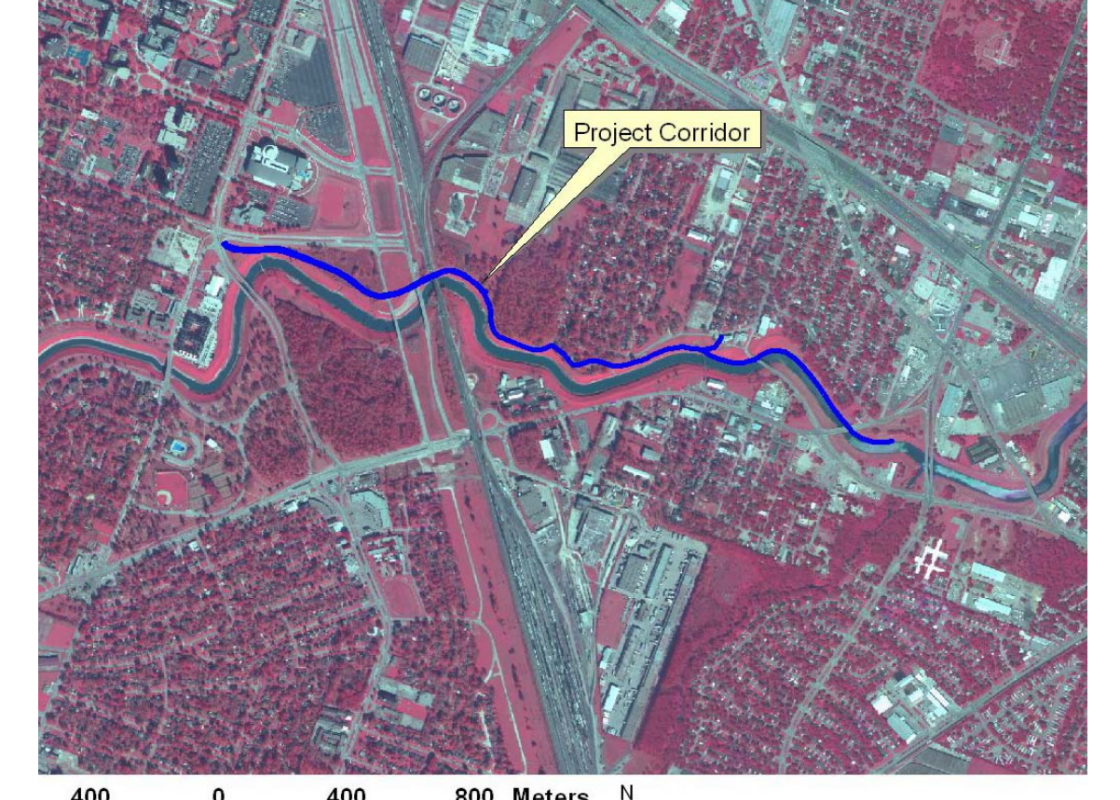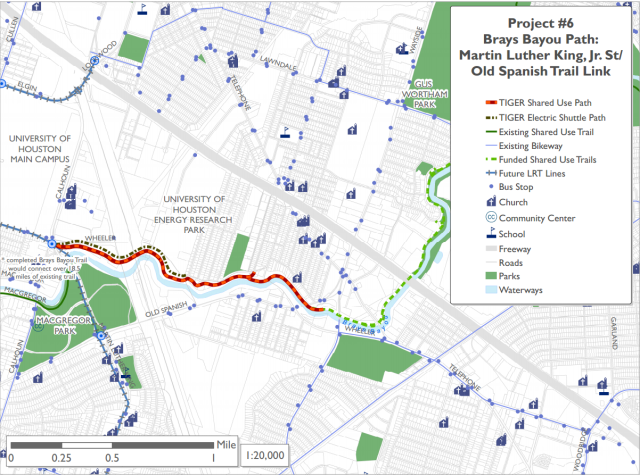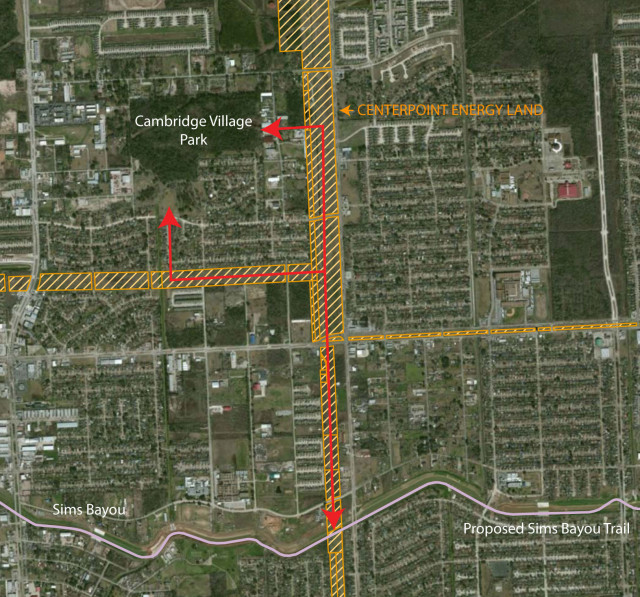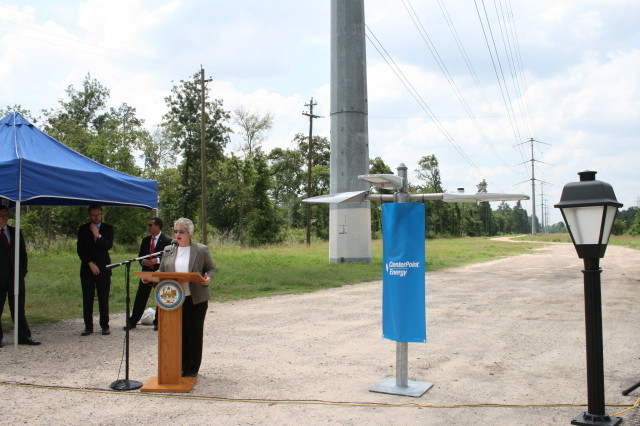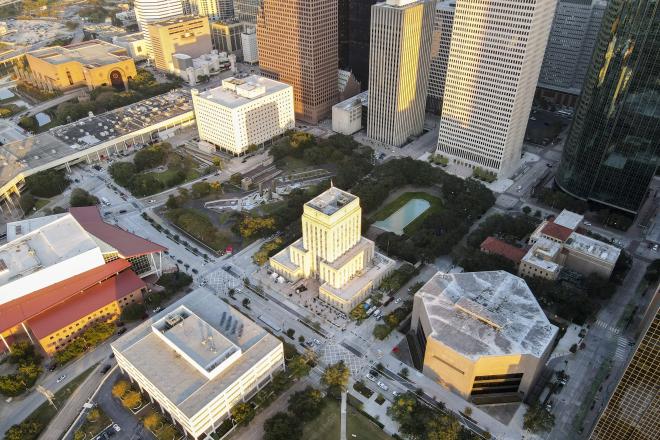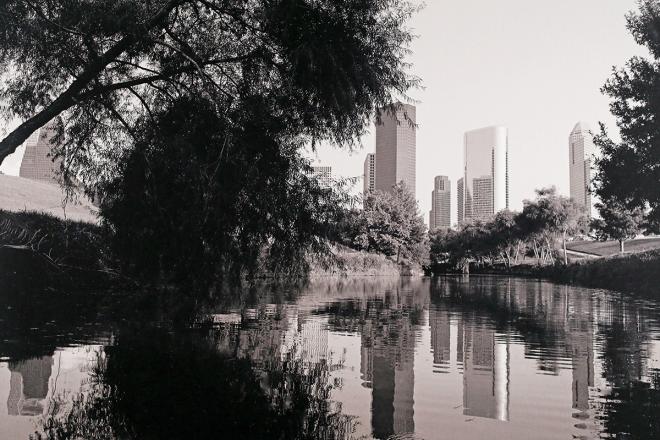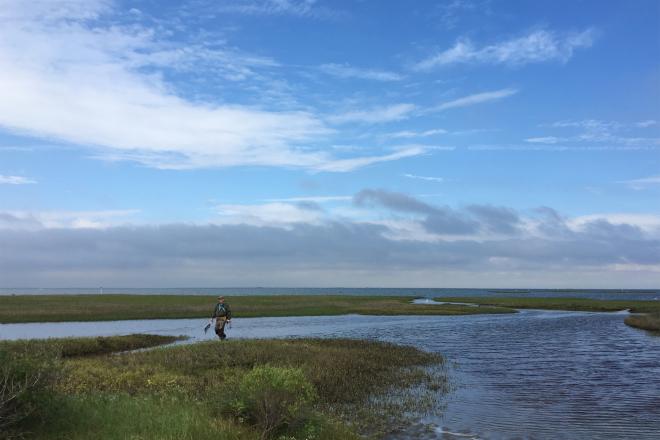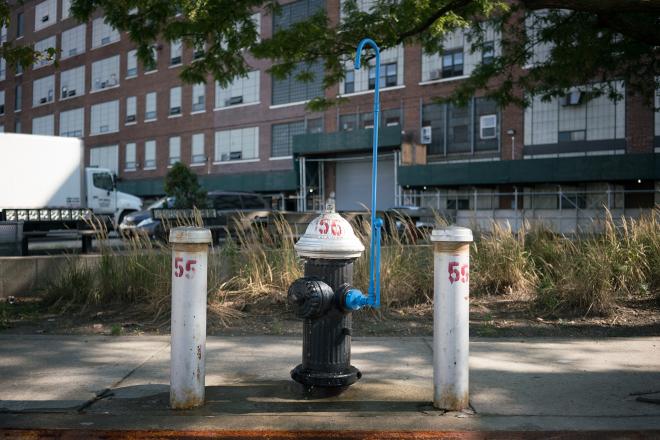Last Friday, City of Houston and CenterPoint Energy officials gathered in Memorial Park to announce two separate significant agreements: one to convert city streetlights to LED and one to allow the city to develop hike and bike trails on right-of-ways (ROWs) on CenterPoint land. [The Rice Design Alliance, which publishes this blog, awarded a $4,200 grant in 2013 to Rice School of Architecture professor Gordon Wittenberg to study these ROWs.] The ROW agreement will give the city access to 400 miles of utility corridors that could be considered for hike and bikes. This follows the Bayou Greenways 2020 program, currently under way, which will put hike and bike trails along every major bayou in the city.
However, as Mayor Parker noted, the bayous run mostly east to west. This agreement will allow for a more complete network by adding key connections along CenterPoint ROWs, many of which happen to run north to south. Others might provide critical links across other gaps. The agreement is made possible by legislation passed in Austin in 2013, after years of negotiation, which would limit CenterPoint's liability for personal injuries on their land.
Director of Houston Parks and Recreation Department Joe Turner said that the first piece of trail to be built under the agreement is a segment on the Brays Bayou trail where it intersects the transmission corridor on University of Houston property northeast of the intersection of Martin Luther King Boulevard and Old Spanish Trail. This segment is called the "Tiger Sixth," which is fully funded by Tiger Grants. "We need this agreement right now to get this project started," says Turner. "We will be working with the Houston Parks Board together, raising funds, to continue this trail system through the city."
The next trail under development will be a north-south Sims Bayou Trail Connector which will connect the trail to Cambridge Village Park:
CenterPoint also announced a donation of $1.5 million to kickstart trail building at a site yet to be determined. To put that in perspective, Joe Turner said that a mile of normal trail costs around $1 million with all the improvements that go with it.
Additionally, the five-year streetlight project will convert Houston's 165,000 streetlights to LED. CenterPoint has agreed to cover the cost of improvements, which will save them on maintenance and bulb replacement. "This replacement project, the largest in the nation, will reduce the city's streetlight energy usage by more than 50 percent, reduce the city's municipal greenhouse gas emission by another five percent, and just as importantly, save the city more than $28 million over the life of the project," said Mayor Annise Parker. CenterPoint President and CEO Scott Prochazka said that Houston will use 70 million fewer kilowatt hours annually, or enough to power 5,400 homes. The project would also improve transition lighting and tracking, color rendering, and reduce dark spots between poles.
State Representative Jim Murphy, Environment Texas Executive Director Luke Metzger, C40 Cities Climate Leadership Group Houston Director Brian Yeoman, Houston Parks Board members and staff, and other advocates and supporters were in attendance.
More >>>
Read previous OffCite coverage of these utility corridors and radical ideas to transform them; read more in Swamplot and the Houston Chronicle.


